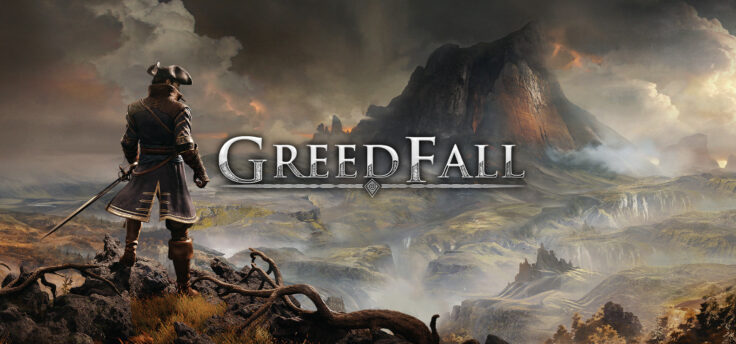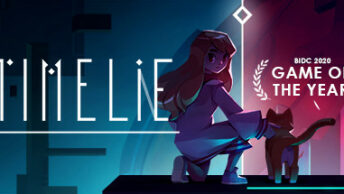An RPG taking place in a well-crafted and original world reminiscent of a historical period of colonisation and exploration.
Type: Single-player
Genre: RPG, Action, Adventure
Developer: Spiders
Publisher: Focus Home Interactive
Release date: 9 Sep, 2019


Intro
Greedfall is a big, open-world RPG in similar style to Bioware, Bethesda, and Obsidian RPGs. Its setting is very similar to the Age of Exploration period in history and particularly the colonisation of the Americas. However, the setting itself is fictional and with fantasy elements.
Although it may look like a triple A game, it was designed by a comparatively smaller studio from France, called Spiders, who have been making similar type of RPGs in the past. I’ve been a big fan of Spiders Studio for many years now, after playing other titles by them such as ‘The Technomancer’, ‘Mars: War Logs’, ‘Bound by Flame’, and their collaborative effort with Cyanide Studio in ‘Of Orcs and Men’. Most of their past games have been ambitious, with interesting stories and worlds, albeit with rough edges, particularly involving the combat system. However, it seems over the years they’ve been refining their games, and now we have Greedfall, which came out a couple of years back. Let’s take a deeper look at this game and all that it offers.
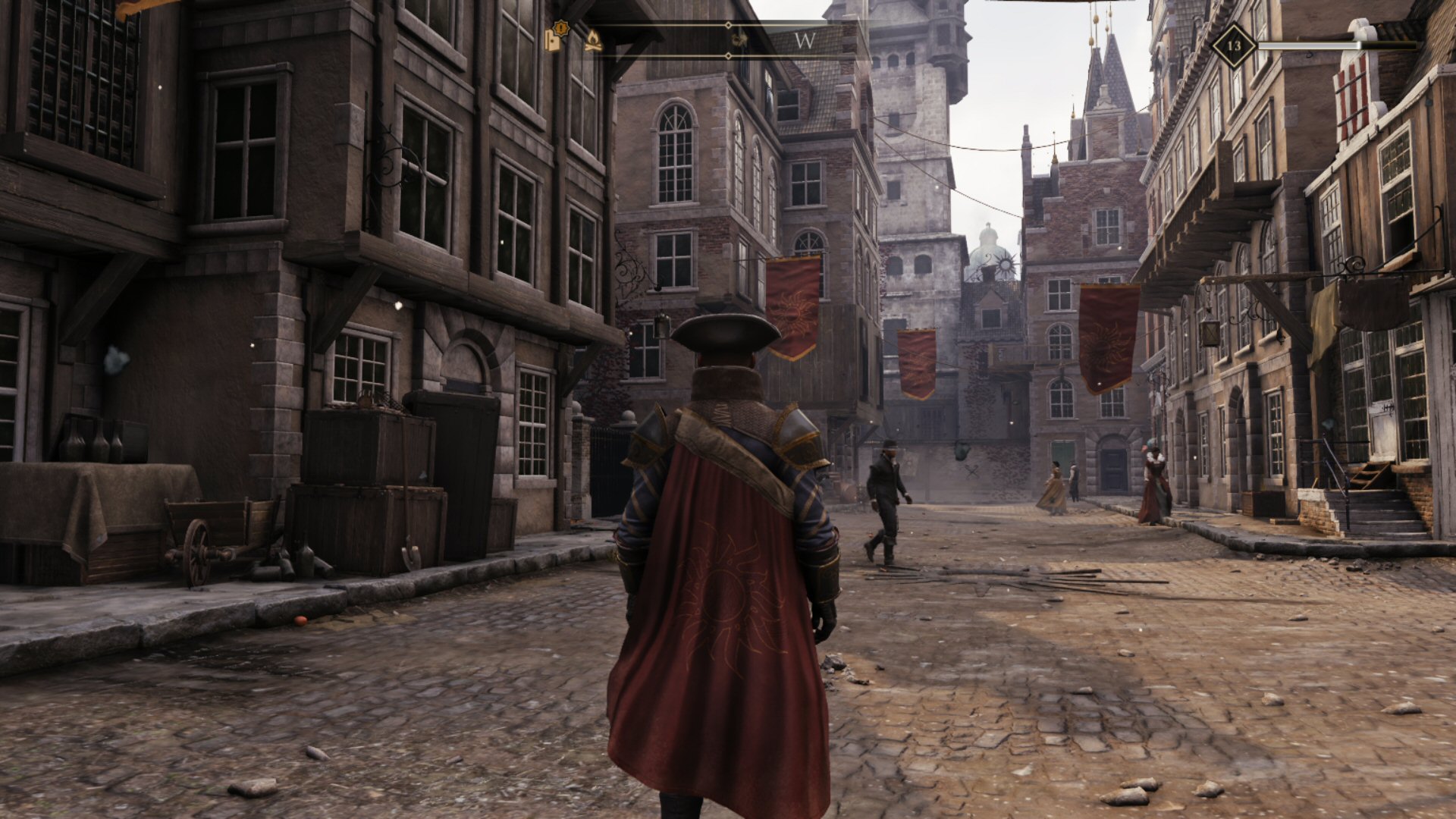
Story, World, Characters
As mentioned above, the setting is reminiscent of the Age of Exploration era and colonization of the Americas. Expect to see nobles in elegant robes, pirates, tribes led by druids and shamans, and a combination of sword fighting with arquebus and flintlock type guns. We get to see a clear contrast between the European-like colonists and the more nature-loving natives. Although there are big similarities to a real period in history, this is an entirely fictional setting with its own unique factions and with some fantasy elements, such as magic and unusual creatures.
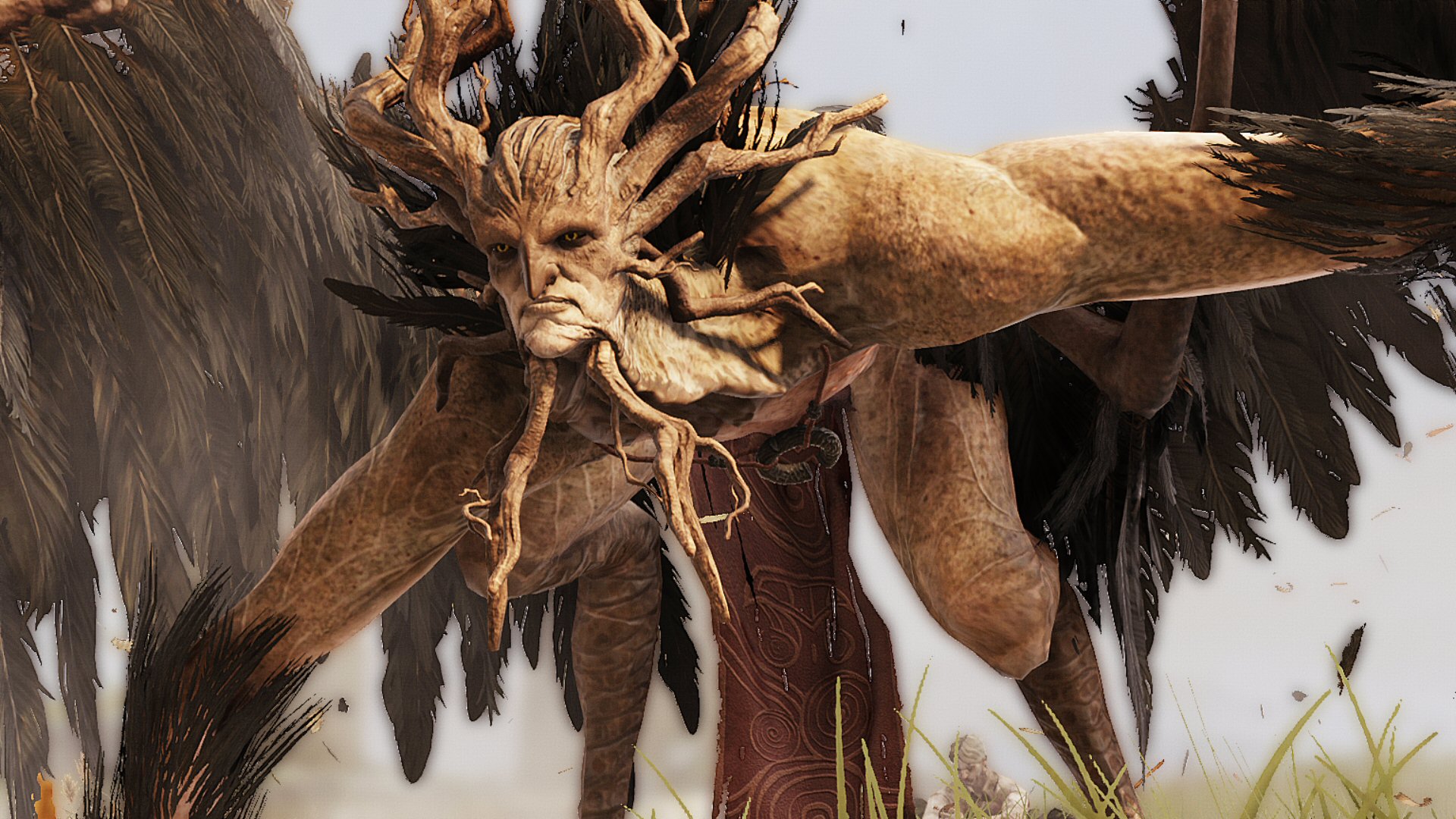
The world is really well-crafted. Each faction has a history to it, as well as its place and influence on the rest of the world. The main factions in the game are: Congregation of Merchants (which we’re part of), Theleme (zealous followers of a Christian-like faith), Bridge Alliance (Middle Eastern type scholars and scientists), The Nauts (the sea-faring people), The Coin Guard (pretty much your mercenaries that are hired as guards all over the cities), and of course the natives, all of which consist of a number of different tribes.
The main continent has been hit by a deadly disease called the Malichor, which is something akin to the Bubonic Plague. With many dying and their bodies being burned on the streets, the authorities began searching for a potential cure in the new lands, such as the island of Teer-Fradee where we spend most of the game.
We play as De Sardet, who is a legate of the Merchant Congregation and a cousin to the newly appointed governor of the Congregation’s colony on Teer Fradee. We’re essentially the eyes, ears, and hands of the Congregation. Having such high position provides an interesting take on interactions with other leaders, as well as with commoners. We often have to use our name and status to gain leverage, apply influence, or win trust. So, unlike many other RPGs, we’re not some unnamed hero with no rank. In the beginning we can customize the look of our character to some degree and to choose whether they’re male or female. The face customization here might not be quite as diverse as many AAA games, but it does give us more options than previous Spiders games.
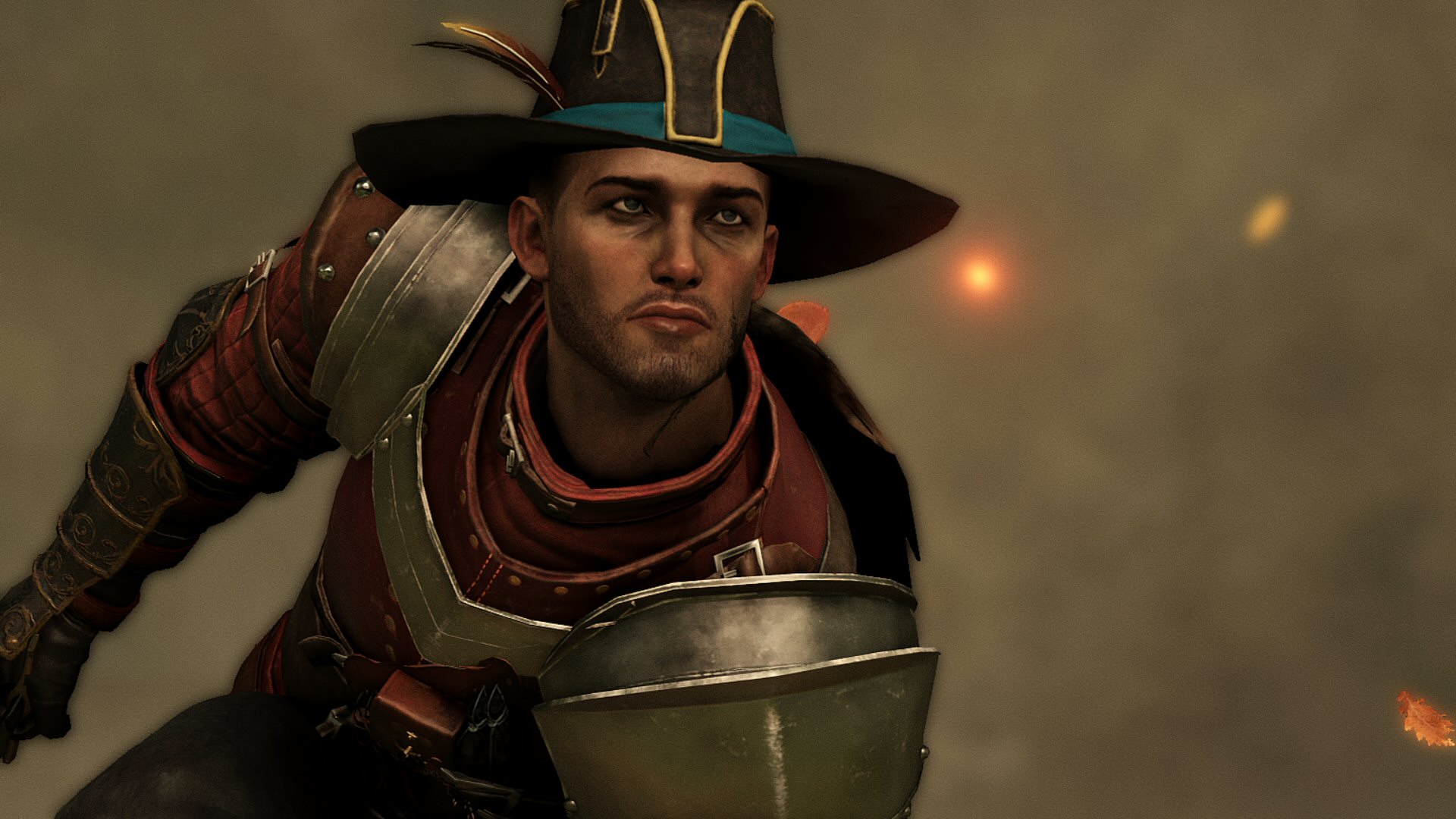
The game admittedly does have a bit of a slow start when we’re still on the continent, and it can take a few hours for the story to really pick up if you choose to do every side quest that is available. Once we get to the island of Teer Fradee is when things start to get really interesting as we have a much bigger place to explore with a variety of locations and people.
Companions, Missions, and Side Quests
As with many RPGs, particularly other Spiders studio RPGs, we have companions who assist us in our missions and with whom we build trust and even possible romantic relationships. There are 5 companions in Greedfall, each one from a different faction and with a different fighting style, personality, and motivations. There is Kurt, the hardened soldier (Coin Guard); Vasco, the ship captain (The Nauts); Siora, the talented druid (the natives); Petrus, the magic-casting priest (Theleme); and Aphra, the gun-wielding scholar (Bridge Alliance).
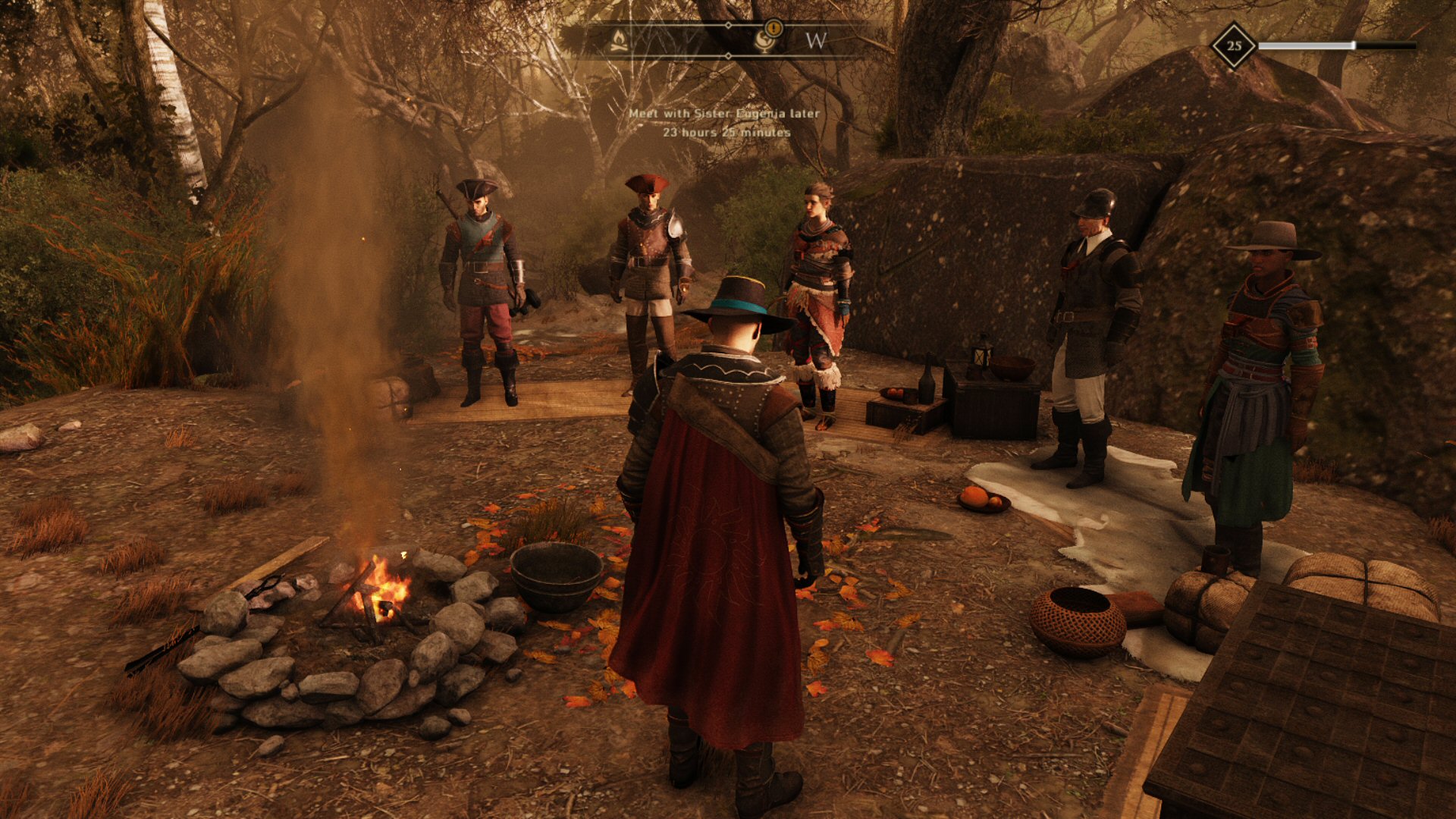
The companions are all interesting people and all are quite likeable (at least I found them to be so). Usually in most RPGs with companions, I end up finding some companion characters to be boring or unlikeable, but in Greedfall I felt that they’ve all been developed well and have realistic motivations. We get to do their personal missions too throughout the game to help us build trust with them. Getting to the top level trust with a companion is not only useful if you wish to romance them, but we also get talent bonuses from them, and on some occasions even this can vastly change the outcomes during crucial story events. The game did a good job at making companions varied enough that we need to think who to pick for the situation. This is important not only for combat situations, but also at times when we need to convince someone or win trust too, which happens often during the game. For example, if we want to have an easier time forming alliances and agreements with the natives, we should bring Siora along.
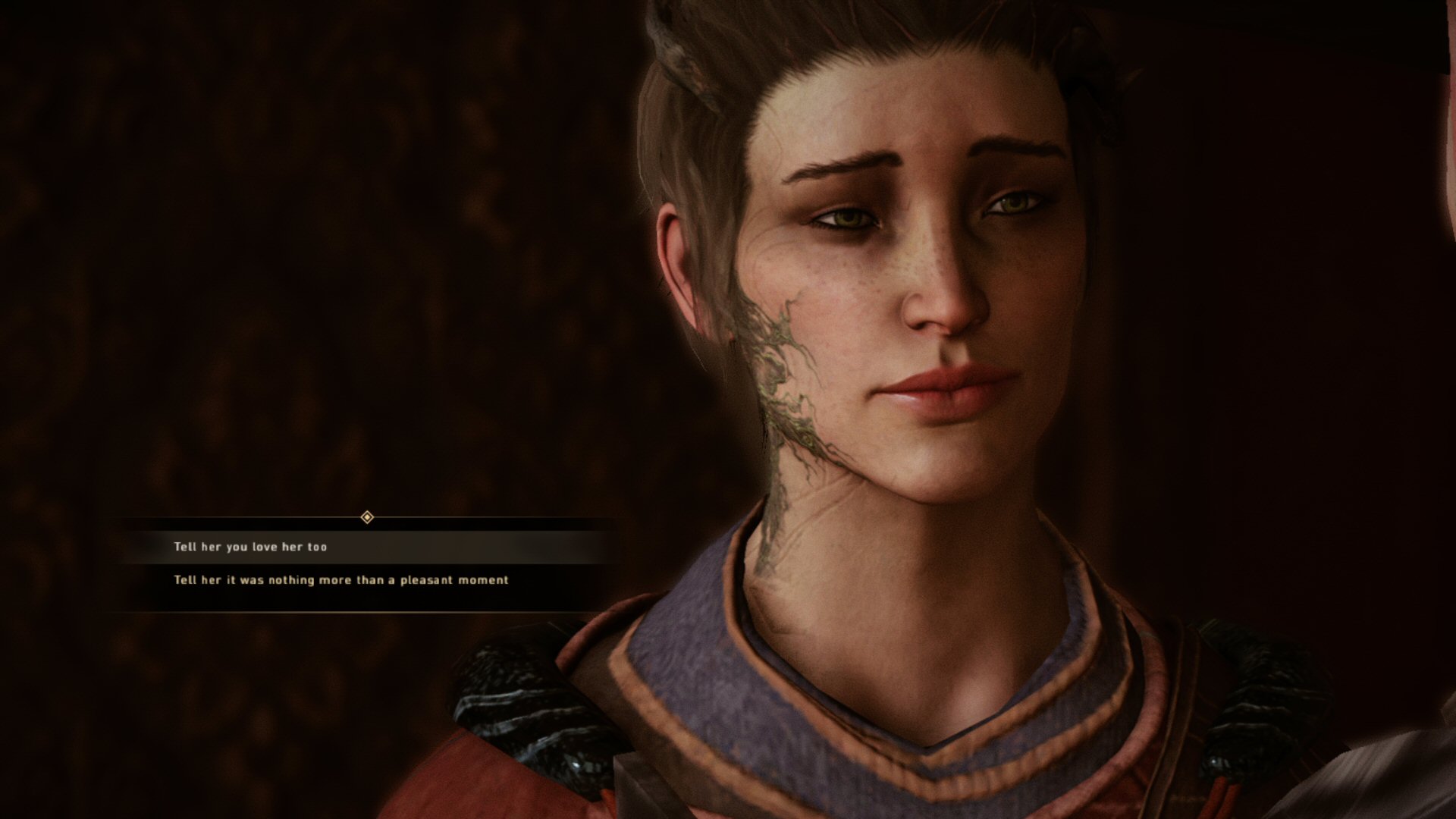
The missions we do for the factions also build up our reputation with those factions. The choices we make during those missions can also have a big impact on our standing with each faction. Having a better reputation with a faction makes them more forthcoming with us when we require their help and assistance during game’s events.
The game has a lot of side quests and side missions in addition to the main quest. In fact, they form quite a meaty chunk of the overall game time and really help us to get to know the game’s world better. I thoroughly enjoyed the side quests in Greedfall. In fact I’d go as far as to say that the side quests in this game are some of the best I’ve ever come across as far as plot-building and narrative goes. They are very well-written and intriguing and often pose tricky moral choices for us to make. Many of them have entire questlines that span an entire game, so we’d do perhaps the first quest early on, then another one at a later time that follows on from the last one, and perhaps more nearer the end of the game. These questlines develop some very interesting stories that exist within this world.
But perhaps what I appreciated the most about the side quests is that they’re not just isolated events that might be irrelevant to the main plot, as is the case in many RPGs. Here they’re all interwoven with the main story. Having done some side quests can have real impact on what happens during main story events, while others could simply provide some extra background information surrounding the events. It’s like they’re all part of a living, breathing world, connected in many ways between each other.
Overall, a lot of the character motivations and political interactions between the factions are pulled off in a very mature and realistic way.
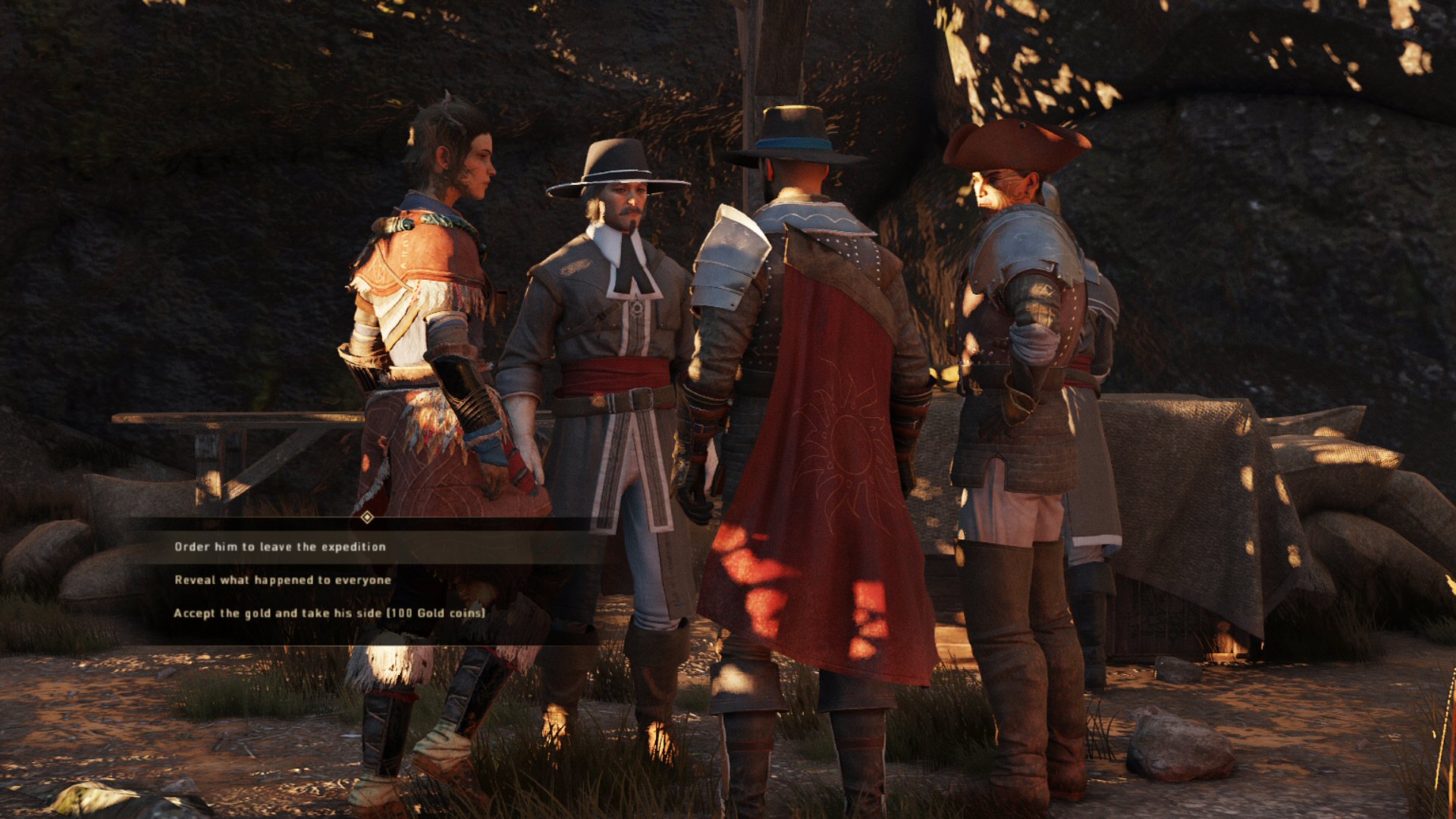
Skills and Talents, Combat, Exploration
As is common in many RPGs, there are many skills, attributes, and talents that we can improve on in Greedfall. We can do this after standard levelling up, which happens when we’ve acquired enough experience points. There are three categories here – the skills, which we can improve on each level up, and also attributes and talents, which can only be improved at certain points after every few level ups.
The skills are all part of a large skill tree, consisting of three main masteries: Combat, Tech, and Magic. Skills in the Combat section allow us to get better at using various melee weapons, Tech ones allow us to better use guns, alchemical bombs, and traps, and Magic allows us to learn magical spells. We have a lot of freedom in how we want to improve our character and can dabble in as many of those areas as we want. The skill tree has many paths we can take, and in order to unlock any skill, we just need to reach it by learning other skills that lead up to it, regardless of which path we take.
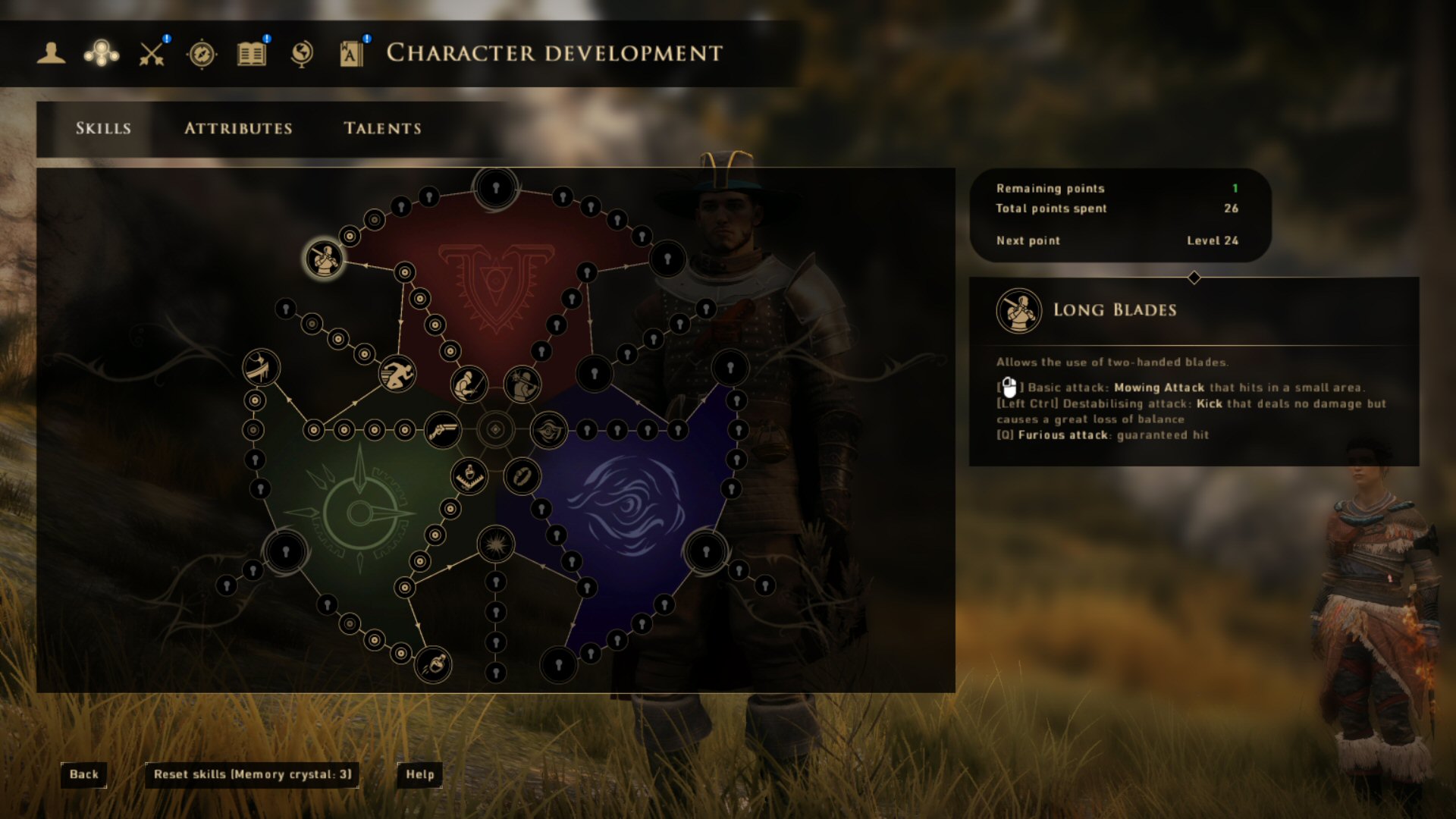
The attributes and talents are a bit different. Attributes include stats such as Strength, Dexterity, Accuracy, etc. Each of these makes us better at using a certain type of equipment, as well as enabling us to wear or use higher end versions of that equipment category. For example, Strength is required for wielding higher end blunt weapons, whilst Accuracy for higher end guns. And finally the talents open up new ways for us to interact with the world that would be otherwise gated off – things such as charisma, which improves chances to convince others with some dialogue options; crafting, which lets us apply better materials for better bonuses on our gear; lockpicking, which allow us to pick higher level locks, and so on.
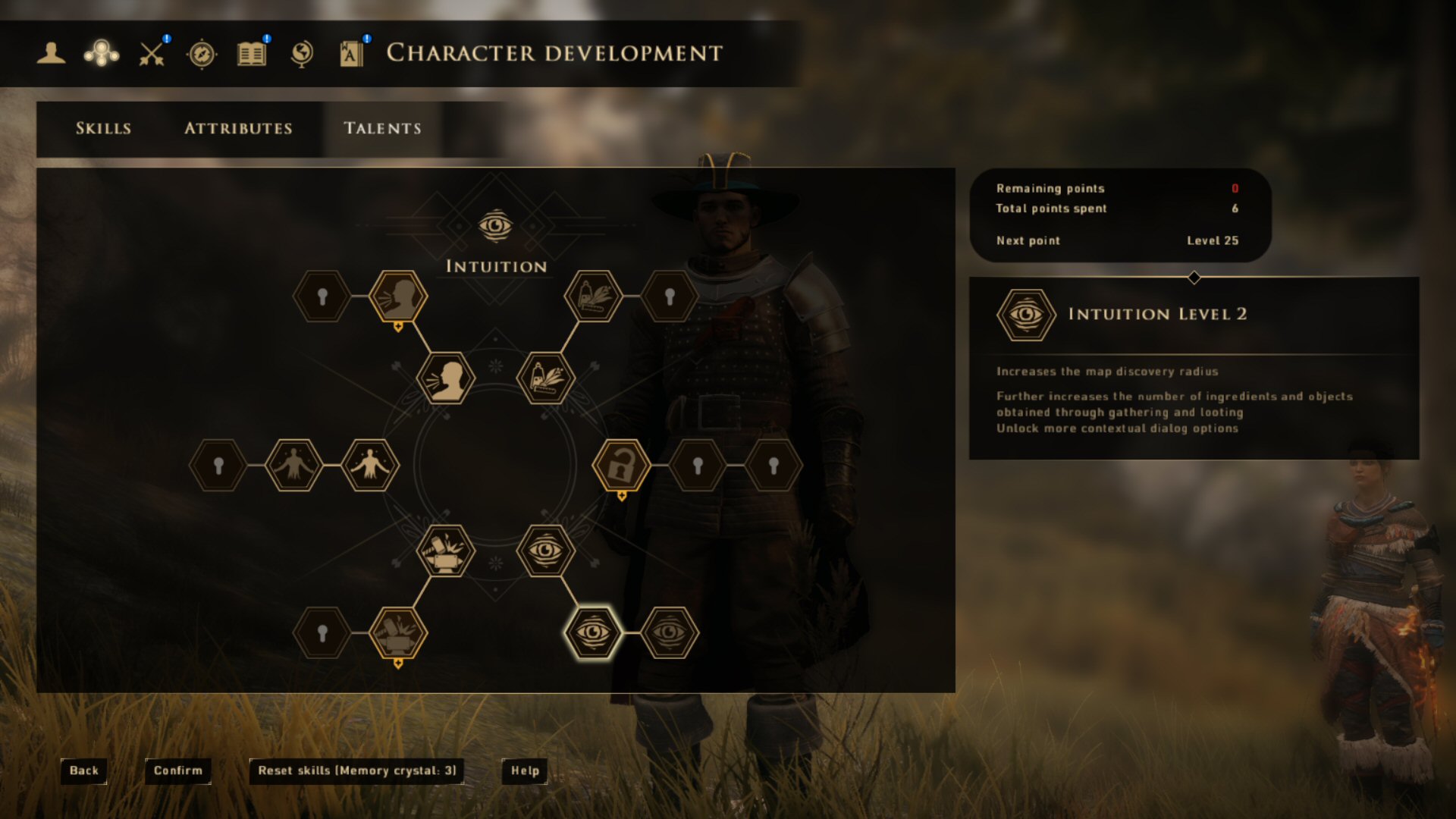
It may seem a bit confusing at first to have skills, attributes, and talents as 3 separate categories, but ultimately it makes sense as they’re all responsible for different aspects of gameplay. Things like Attributes and Talents are especially the ones I often felt I wanted to level up in many different directions, as I was coming across many parts of the environment that were gated off to me that I really wanted to use (as is the case with improving the right Talents) or to use certain weapons or armour that I couldn’t (as is the case with improving the right Attributes). On another hand, we can gain bonuses to these if we do specific upgrades on our gear or if we have a certain companion in a party that is proficient in that area, so levelling up is not the only way to gain access to a sufficient level on an Attribute or Talent. The presence of the right companion in the right situation can make a difference, even in mid-dialogue, and on many occasions in the game, using words to do the convincing is much more beneficial than using force.
Speaking of force, even if we are a very smooth talker, we still need to be able to handle ourselves in combat. In addition to treacherous humans, such as bandits, slavers, and traffickers, there are also wild beasts and guardians, all of which pose a formidable danger. In combat we utilise our equipped melee weapons and can also use secondary weapons and items, such as guns, potions, alchemical bombs, traps, and magic. Some specific combat skills become available only if we’ve unlocked them on a skill tree.
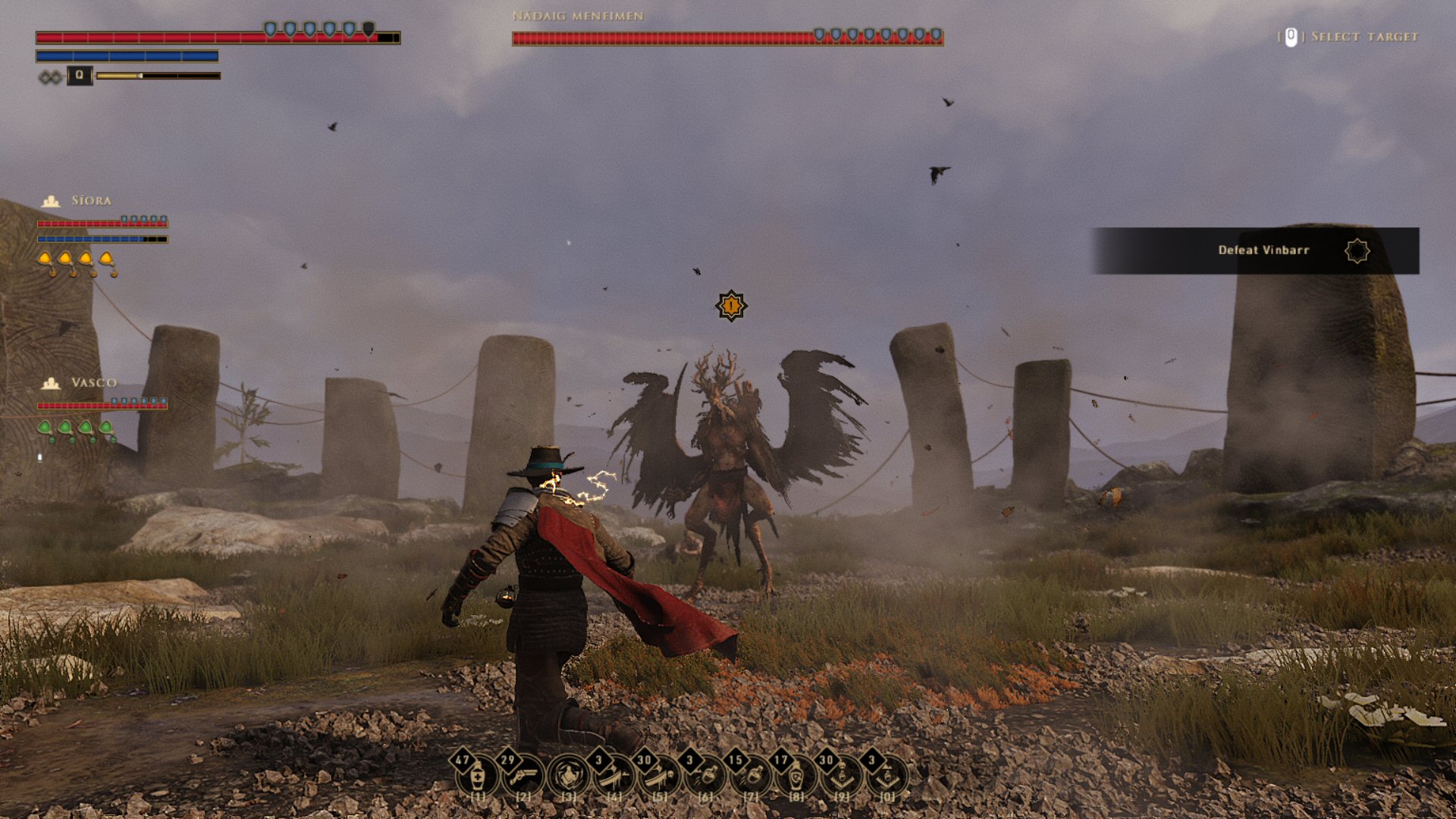
When in combat, we can make use of a tactical pause feature. This allows us to pause combat and to quick select anything from our inventory to use, such as a health potion for example. We can also attach certain items to a hotbar if we want to make use of them without going into the tactical pause. In either case, the tactical pause is pretty useful as it can give us a chance to pause the action and think on what to do next in a tough fight.
We don’t always have to face enemies head on as the game also has a stealth system. If the enemy hasn’t seen us yet, we can sneak past them and avoid combat altogether, or sneak behind them and deal bonus damage that may kill them instantly. This is useful during many situations in the game.
In the previous Spiders games, combat often was somewhat clunky or there were big difficulty spikes in places. This time round, I think they’ve finally nailed it and managed to refine the overall feel of combat and difficulty balance of the fights.
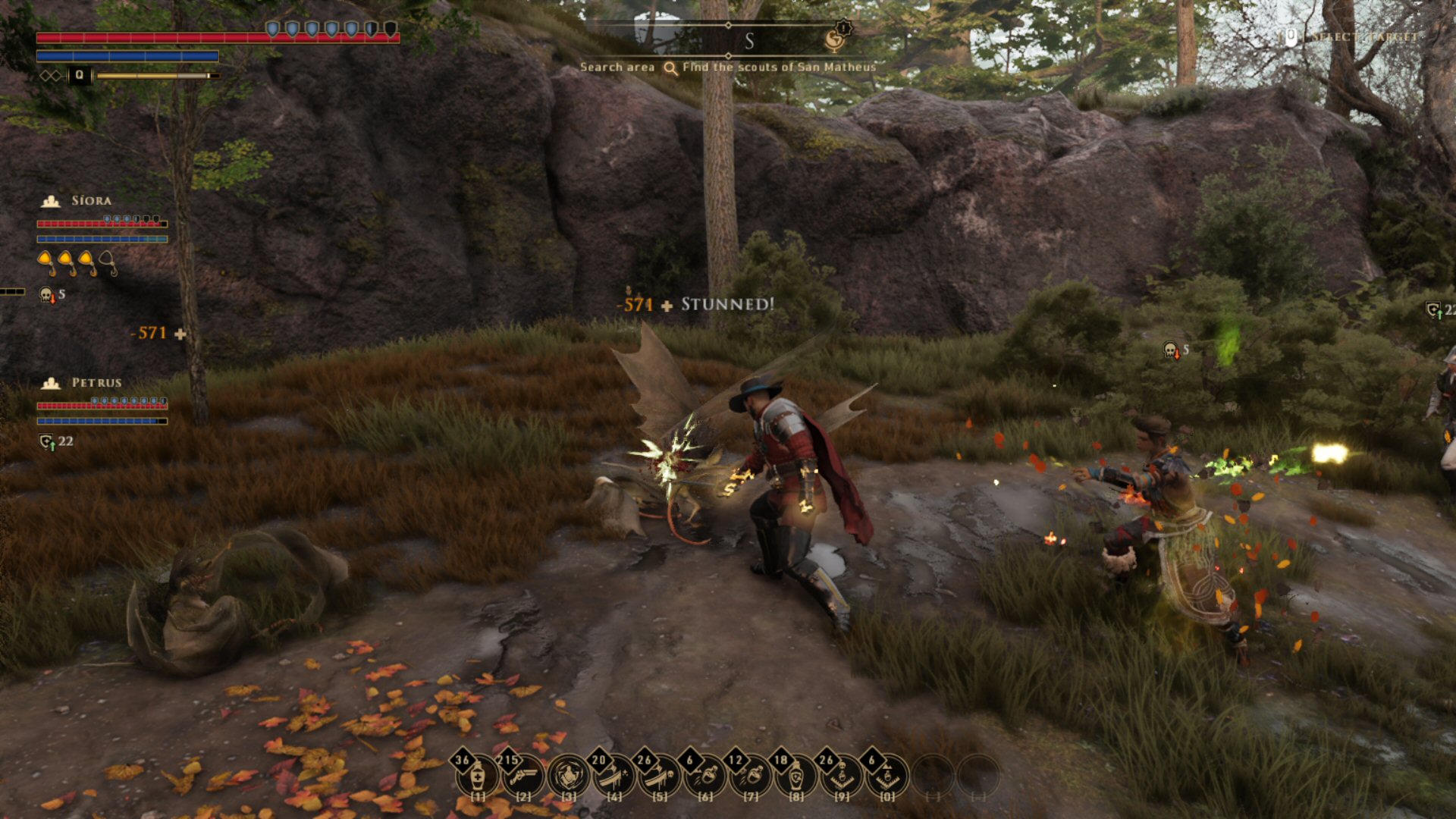
As there are many places to visit in the game, one of the big aspects of gameplay is exploration. Most places are outdoor areas that are filled with hostile wildlife. One of the things I liked the inclusion of are the campfires. In some parts of each location, we can activate campfires, and these campfire places become memorized on the map. We can then return to them at any time in the future instantly via quick-travel. This means that once we’ve explored an area, we can easily come back to it later without needing to cover large distances in real time.
Having said that, there are times in the game where it does feel like we’re walking a lot. This can be felt especially often during some sidequests, where we might need to go back and forth between different NPCs, at times across different parts of the map and other times while needing to traverse an entire building from the basement to the top floor. Those times were pretty tedious and annoying and perhaps could’ve been streamlined better so not to waste player’s time. A few of the quick-travel checkpoints could’ve been placed in better locations too. For example, in the Theleme city of San Matheus, if we wanted to visit the city leader in her palace, which happens quite often in the game, we have to walk through a very large portion of the city from the nearest quick-travel checkpoint. A small comfort in this regard, however, is that we can sprint indefinitely when moving around the places as there’s no limited stamina at all.
Presentation
The game boasts with some very stunning-looking visuals. The environments are all very detailed and feel alive. I think the pictures can convey this a lot better than words. Many times while walking around the maps, I found myself stopping to admire the scenery and to even take screenshots.
Of course, the environments are not the only ones that contribute to the good visuals of the game. Many of the things relating to user interface, such as icons, menus, and so on, are all done well too and are easy to use and navigate.
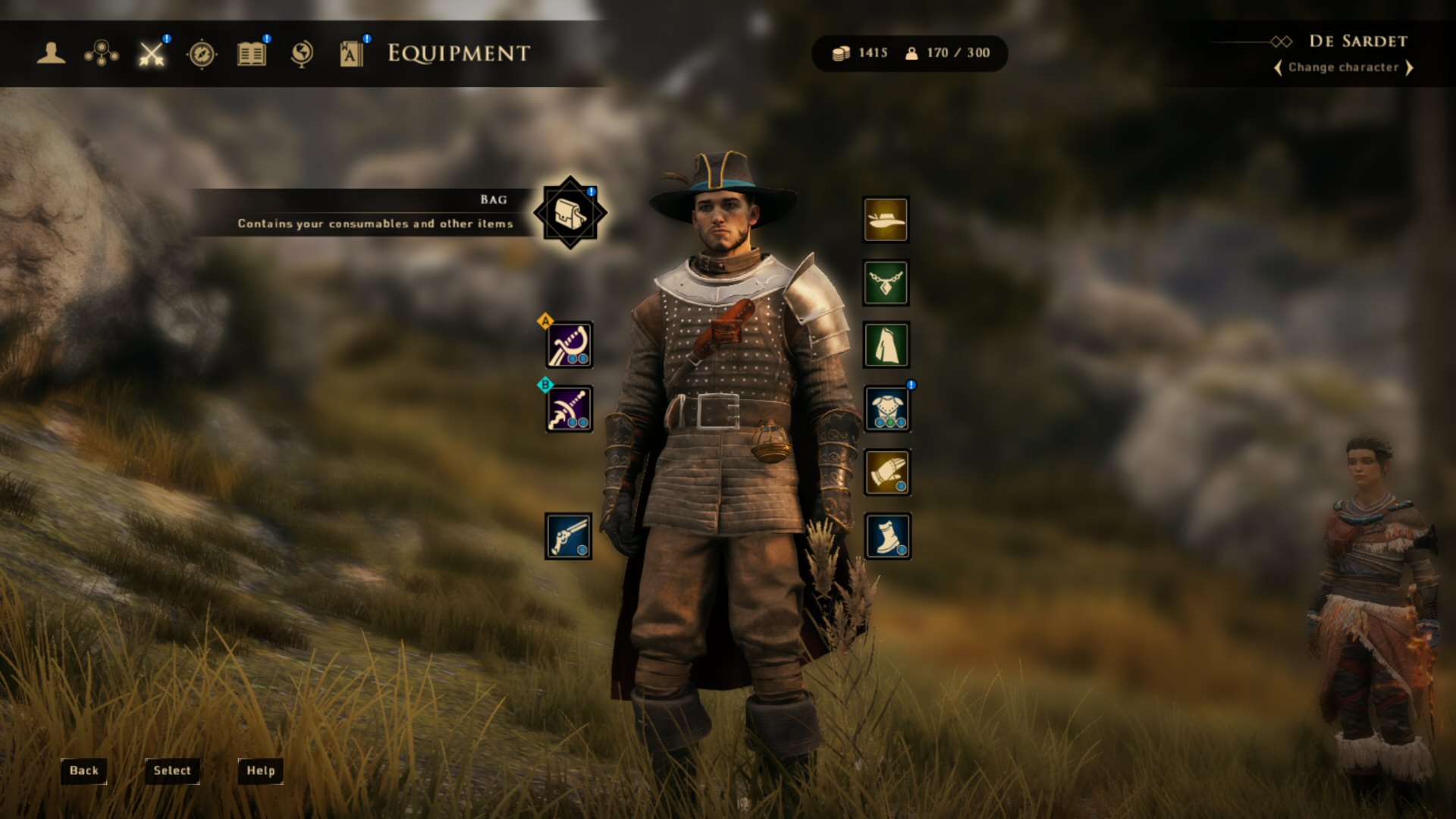
One aspect of the visuals and environment design that can be criticised are the identical interiors of some places such as palaces, barracks, and taverns. They seem to have an identical design in each major city of the game and could’ve been done a little differently to each other.
There are some pretty nice musical tracks playing in the game, but what is even better, is the game makes a very good use of music to build tension and intensity in some situations. Many times I found myself noticing the pace of the background music as things start to escalate or when enemies are nearby or when something in the scene feels really off.
You’ll likely notice from very early on in the game that there is a very extensive amount of voice acting. The game features a massive world full of a large number of different characters, and many dialogues happening with each one of them – and all the lines are fully voiced, including the main character’s voice, which even some triple A developers sometimes omit. And not only do we get voiceover during actual dialogue scenes, but also at times the main character and companions would comment on the events happening at that moment, and depending on which companions are with you then, you’d get to hear different things being said. So in regard to voiceover, the game has gone above and beyond.
I’ve not come across major bugs. Only a handful of minor ones here and there, which wasn’t frequent at all for a game that’s about 40 hours long. There might’ve been some bugs at release, but I believe they must’ve been fixed by now.
Verdict
‘Greedfall’ is an excellent RPG that offers a highly-detailed and intriguing world with plenty of characters, stories, and some of the best side quests I’ve ever experienced, as well as multiple different ways to play and engage the game’s challenges. Together with breathtaking visuals, a good use of music to induce tension, and full voice acting, it manages to deliver the same kind of quality as the triple A RPGs do, and I believe it’s virtually indistinguishable from them, despite being made by a much smaller studio.
Of course, I don’t think that everyone will enjoy it. ‘Greedfall’ can be a bit slow-going in places, especially at the start, and it focuses more on immersion and world-building, so if you expect to be in combat every 5 – 10 minutes, you might not enjoy it. The only other gripe is needing to walk and backtrack a lot during some quests, but this happens often with many open-world RPGs from my experience. Aside from those, ‘Greedfall’ ticks almost all the boxes that I like in my RPGs, and I believe it does all the key aspects of RPGs really well.
I think after several games of experimentation and refinement, Spiders Studio has created their best game yet. I really hope that someday they’ll create a game that is either in a cyberpunk setting or something akin to space opera spanning multiple planets. For now, the game they’re currently working on, Steelrising, takes place in a dark steampunk version of France during the French Revolution.

